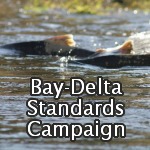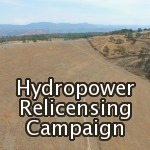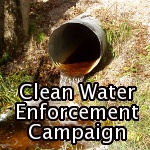On July 2, 2021, the Fourth Circuit U.S. Court of Appeals issued an important decision regarding Section 401 of the Clean Water Act, overturning an Order by the Federal Energy Regulatory Commission (FERC). FERC’s Order had found that the state of North Carolina had unlawfully “coordinated” with the license applicant to delay the state’s certification that a new FERC license for the Bynum hydroelectric project complied with state water quality laws. FERC found that North Carolina’s participation in the delay meant that the state had “waived” its authority under Section 401 to issue the certification.
The Court reversed FERC’s finding of waiver because the finding was not supported by “substantial evidence.” The Court wrote:
If (as we are assuming) mere coordination between an applicant and the state agency can lead to a finding of waiver under § 401, then it must take more than routine informational emails to show coordination. Were the rule otherwise, applicants could manipulate state agencies into inadvertently waiving their certification authority just by asking questions. The States’ rights and responsibilities to ensure compliance with their own water-quality standards are too important to be so easily stripped away.
This noteworthy decision may help CSPA defend water quality on several California rivers. CSPA, along with other environmental groups, has been vigorously contesting a series of FERC’s unwarranted waivers of Section 401 water quality certifications for hydropower projects. In California, the State Water Board is the agency that issues 401 certifications for new hydropower licenses.
CSPA has filed petitions for review with Ninth Circuit US Court of Appeals, seeking to overturn waivers on the following hydro projects:
- Nevada Irrigation District’s (NID) Yuba-Bear Hydroelectric Project
- Yuba County Water Agency’s (YCWA) Yuba River Development Project
- Merced Irrigation District’s (Merced ID) Merced River and Merced Falls Projects
The Ninth Circuit has consolidated these cases, including petitions for review filed by State Water Board on the same waivers, into a single case. In all three cases, the licensee withdrew and resubmitted applications for water quality certification.
CSPA is hopeful that the recent North Carolina decision will have a positive effect on these California cases, and thus help CSPA and others to restore the proper functioning of Section 401 of the Clean Water Act in California, which is vital to preserving water quality for both people and fish.
The case is North Carolina DEQ v F.E.R.C., — F.4th —, 2021 WL 2763265 (4th Cir. July 2, 2021).









